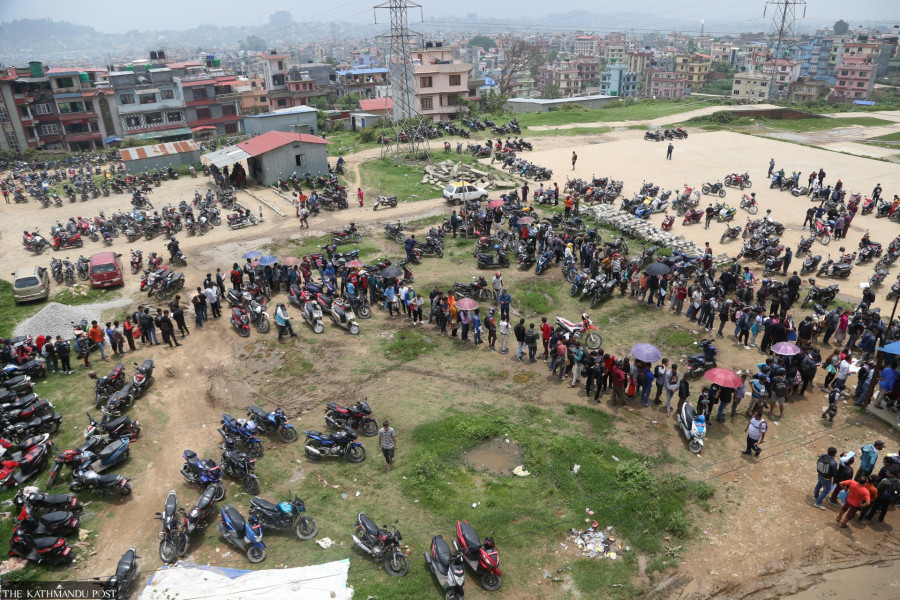Editorial
Life on the line
We seem to have normalised standing in long queues as part of daily existence.
It is high time one of Nepal’s research organisations conducted a multi-pronged research on the sociological and economic imperatives of standing in queues in government offices. In fact, "in" is often the wrong preposition to use when we speak about service seekers’ relation with government offices, as they are often always made to stand outside windows. So much so that if we think of a government office, chances are that we imagine ourselves outside of one of many windows while public officials sitting cross-legged on their rickety chairs peruse our documents. Come rain or shine, service seekers have to stand outside the window to get their work done. The window of a government office thereby becomes the frontier that divides "us", the bureaucrats and "them", the service seekers.
Be it while getting a passport, citizenship card, national identity card or driving license made, a service seeker has to be prepared to wait for hours. We often come across photographs of migrant labour work aspirants tightly hugging the backs of others even as they wait to register for the Korean EPS tests. The Covid-19 vaccination centres were a dreadful sight last year as hundreds of people stood in lines in close proximity to each other as they waited to get jabbed while also fearing that they might contract the virus in the queue itself. We are so used to standing in queues that we often do not even complain about having to endure hours of sun or rain or pain to our legs. For far too long, we have considered queuing, waiting and being sent from one table to another as normal. Of course, we find every excuse to break the queue whenever we get a chance. Such little transgressions give us a sense of achievement if we do not get caught and sent back to the far end of the queue again.
It has become second nature to us, so much so that it has seeped into our psyche as part of our national culture as we do not seem to be able to think of a day when we can get our work done without standing and waiting. This is because public service has hardly ever been the priority of our policymakers and administrators. Authorities use queues to maintain their authority; the service seekers do not mean much to the administrators, although the latter survive on the taxes paid by the former. And there is definitely no culture of respecting the time of others. And when the service seekers who have stayed in a queue for hours see someone with access enter the offices and get their things done within minutes, they feel cheated, even disrespected, for being a "common" Nepali. Visiting government offices is often a tedious, even humiliating experience.
This is the reason why there is delay after delay despite bureaucracy functioning for six days a week, because actual work is hard to come by. The world has made great strides in the way bureaucratic work is done. In Nepal, good governance remains a chimera although government documents do not stop using the phrase. There is now a fascination with going digital, without making enough investment in the infrastructure, leading to more trouble to service seekers, although a handful of public institutions have made significant improvements in their internet-based service delivery in the past several years. How do you use it where people do not have access to technology? The service seekers should also be trained to adapt to the technological changes happening all around. Public institutions should come up with innovative ways to remove bureaucratic hurdles that impede their function and trouble service seekers on a daily basis.




 13.12°C Kathmandu
13.12°C Kathmandu














